Open Education Resources are extremely important to the field of education. What are OERs however, and what is their role in K-12 and higher education, particularly here in Michigan? In the coming weeks, this portion of the website will continue to expand and grow as the team writes more about Open Education Resources and their place in education, particularly in the state of Michigan.
Open Educational Resources (OER) are teaching and learning materials that are freely available online for everyone to use, whether you are an instructor, student or self-learner. Examples of OER include: full courses, course modules, syllabi, lectures, homework assignments, quizzes, lab and classroom activities, pedagogical materials, games, simulations, and many more resources contained in digital media collections from around the world. (PBWorks, 2013)
Some facts about OERs:
They are free to use and reuse.
Some can be edited or changed depending on their license
The content can be remixed or revised into something different
They can be shared openly
While there are hundreds of different examples of OERs in the field of education, some common forms include:
- A full course
- Mini-lessons
- Simulations
- Adaptations of existing work
- Electronic texts
- Lesson plans
- Assessments
Imagine for example that you are a public school educator who may have been reassigned from a subject you’ve taught for many years into something that you’re certified to teach but haven’t had as much experience with. You might choose to look for an OER course that you can either take yourself to brush up, or use pieces of in your classroom. Simulations and mini-lessons available on the web by teachers who have taught the content might make their way into your classroom.
What if you are looking for new materials to use in a course you’re teaching? Digital resources could help supplement the decaying textbook on your shelves. Assessments made and shared by other educators centered on the curriculum you’re teaching can be downloaded and adapted to meet the needs of your own students. Curriculum made available by neighboring districts can save countless hours trying to find the proper tools to reach the students in your charge.
Two major projects in Michigan that champion the “open” movement are the MI Open Book project, and the Performance Assessments of Social Studies Thinking (PASST) projects.
MI Open Book
Started in 2014 as part of the Technology Readiness Infrastructure Grant (TRIG) the MI Open Book project is designed to give kids a first exposure to the content that they will learn about in their social studies courses. Funded by the Michigan Department of Education (MDE), the MI Open Book resources were created by teachers from around the state who have taught their content for many years. They are edited and maintained by professionals from the field of Social Studies which include ISD consultants, university faculty, and district curriculum leaders who all have extensive background knowledge in their content. It is a true collaboration of k-12 and higher education.
How is it open?
While the MI Open Book resources are compiled into versions suitable for Chromebooks, Apple devices, and Windows machines, the source files (both in iBooks Author and InDesign) will be made available to the districts in the state for ongoing usage and customization. While central copies will be available on the MI Open Books website, districts are encouraged to customize the materials further to meet the individual needs of learners.
PASST
Started in 2011 as a statewide collaborative from multiple Intermediate School Districts, the PASST project is designed to assess the Michigan Content Expectations in a less traditional way than the standard A-D Multiple Choice. Using technology enhanced item types and distributed both with test booklets and a customizable Moodle course, PASST assessments are currently available for US History (5th, 8th, HS) and World History and Geography (6th, 7th, HS) with Michigan History, United States Studies, HS Civics and HS Economics on the way. PASST is a completely volunteer initiative with no funding from the department of education and is made up entirely of volunteer teacher writers from the field.
How is it open?
PASST Moodle courses are freely available for download and use within a district. Course imports include the question bank and pre-designed testlets for use in the classroom. Test booklets are also available in PDF and Word Document formats. These assessments will soon be shared nationally as part of the IlluminatED banks.